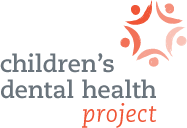The Children's Dental Health Project's blog
A look at three states’ Medicaid approaches to oral health access in pregnancy
 The Kaiser Family Foundation recently unveiled their annual Medicaid budget survey. It offers a national review of trends in the Medicaid programs across the country. At an event to mark the release of their findings, KFF also hosted a roundtable of Medicaid Directors from West Virginia, Tennessee, and Washington.
The Kaiser Family Foundation recently unveiled their annual Medicaid budget survey. It offers a national review of trends in the Medicaid programs across the country. At an event to mark the release of their findings, KFF also hosted a roundtable of Medicaid Directors from West Virginia, Tennessee, and Washington.
Two findings in particular stood out:
- Adult dental benefits were one of the most common benefits cut in 2019.
- States are responding to alarming trends in maternal mortality and morbidity by expanding pregnancy and postpartum services.
This presents a concerning combination of circumstances. In our 2018 brief, Oral Health During Pregnancy, we pointed out that pregnant women often experience obstacles to receiving oral health care (as seen in the infographic below). Poor oral health is associated with low birthweight, preeclampsia, and other complications in pregnancy that can harm both a mother and her child. Improved access to oral health coverage and care, especially in public programs like Medicaid and the Children’s Health Insurance Program (CHIP), could help low-wage mothers address oral health issues.
[click to expand infographic]
CDHP staff had the chance to ask about this issue while at the event. The state officials gave a mix of answers when explicitly asked about our specific concerns around oral health; the connection between dental access and healthy moms, pregnancies, and infants; and what their states were doing to address these issues.
- Washington offers a relatively generous Medicaid adult dental benefit. They are actively working to address families’ oral health needs, including by piloting efforts to enhance benefits and increase reimbursement rates for providers seeing pregnant women. This program also aims to educate moms and providers on the importance of oral health during pregnancy.
"Poor oral health is associated with complications in pregnancy that can harm both a mother and her child. Improved access to coverage and care could help low-wage mothers address oral health issues."
- In West Virginia, there are a number of obstacles to care, from a dearth of providers to adult dental coverage that is limited to only emergency services. Of note, a number of the managed care organizations in the state offer limited preventive dental benefits for pregnant women. While this is a step in the right direction, it is unclear how many people are aware of these services and able to take advantage of them. Additionally, it’s disappointing there doesn’t seem to be more leadership on this issue from decision makers in the state’s legislature and health agencies.
- Finally, Tennessee offered perhaps the most baffling answer. The Medicaid director spoke passionately about the importance of connecting pregnant women to oral health care. But he then turned, in earnestness, to the state’s plans to shift the financing of their Medicaid program to a block grant. He expressed sincere hope that, by doing away with federal regulations, the program could provide pregnant women and others expanded access to vital benefits.
For a variety of reasons, CDHP remains concerned about the potential consequences of block grants. Provisions that do away with the guidance and funding structures currently in the Medicaid statute are deeply troubling, as they could limit oral health care access among other harms. Many of our peers share similar concerns.
Tennessee’s proposal is especially worrisome as it would apply the block grant to both adult and child populations. This raises the question of how the state could meet its obligations for comprehensive and individualized care for children under federal EPSDT requirements.
We are hopeful that so many voices are coming to the table to lift up the need for expanded oral health coverage for expecting parents. But at the same time, we are dismayed that some have not yet introduced solutions — or worse, that they may look to policy approaches that will harm people in greatest need of support.. There are many promising paths for Medicaid programs to support individuals’ oral health, which has community-wide benefits. For some starting ideas, decision makers, advocates, and families can engage with CDHP’s policy brief and review our past expert webinar on the issue, both accessible on our oral health and pregnancy brief landing page.
